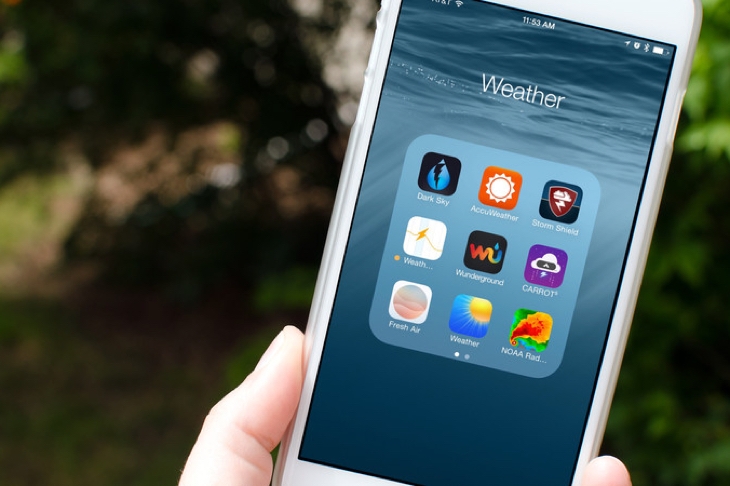The Times reports this morning that Bournemouth business leaders are hugely annoyed with the BBC, whose weather app predicted thick cloud and thunderstorms for the recent bank holiday. In the event, it was sunny and warm, but the damage had already been done, and takings on the seafront were said to be down by nearly 40 percent as people decided to stay at home rather than risk a soaking.
While weather forecasting is undoubtedly getting better, it seems fairly clear that ultra-local forecasts of the kind you find on weather apps can be very misleading: reducing the whole forecast to a single icon, as most apps do, removes all the nuance. The lesson seems to be that if you are going to make a decision based on a forecast, you should watch the TV weather and get it explained to you.
However, another problem with weather apps is the ultra-local nature of the forecast, which implies a level of accuracy that weather models just can’t give. It’s easy to see that a thunderstorm is going to hit the Dorset coast, but much harder to say precisely where it’s going to cross. As we have seen, there can be a considerable price to be paid for getting it wrong.
It’s the same story over the longer term. The Met Office produces the UK’s official climate predictions, known as UKCP09, which purport to tell us what is going to happen to the UK’s climate a century hence. The standard results are given for a 25-km map grid, but you can also get results on an ultra-local scale: a 5-km grid. This is, not to put too fine a point on it, grossly misleading. It is far from clear that a computer simulation can tell us anything about the global climate in century’s time — as the eminent climatologist Roger Pielke Sr is fond of pointing out, no computer climate simulation has ever been shown to have any skill in reproducing any aspect of the climate at sub-global levels. Predictions for 5-km squares a century out into the future are therefore outright astrology.
In passing, it’s worth noting that the situation with the UKCP09 is actually even worse than that. Back in 2012, a major bug was discovered in the process that generated the predictions, entirely invalidating the output. Despite this, the Met Office has refused to withdraw them, and still cites them today as if they were entirely trustworthy.
And just like the weather forecast for Bournemouth, dodgy climate predictions have costs. For example, in Scotland, specifications for drains have been changed as a result of UKCP09’s predictions of increased rainfall in the second half of this century. Will this turn out to be a waste? No doubt the predictions and their attendant software bug will have been long forgotten by then.
But one example of waste as a result of the Met Office’s work has already come to light. The Highways Agency has reported that, in response to the UK climate predictions, it adopted French temperature standards for roadbuilding. It was a lovely idea, but unfortunately these roads quickly fell apart in the biting cold winters of 2010/11 and 2011/12. It would be funny if we taxpayers weren’t footing the bill.
A Danish proverb famously notes that “It is difficult to make prophecies, especially about the future”. It’s a point that the forecasters might do well to remember when other people’s money is in play.
Andrew Montford is deputy director of the Global Warming Policy Forum.






Comments